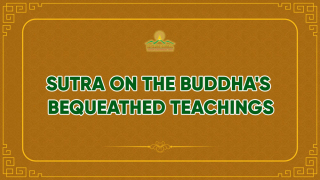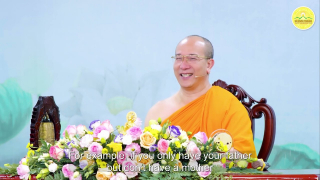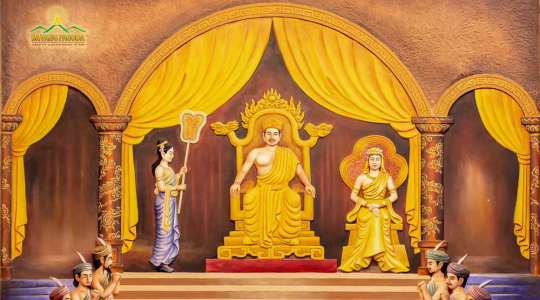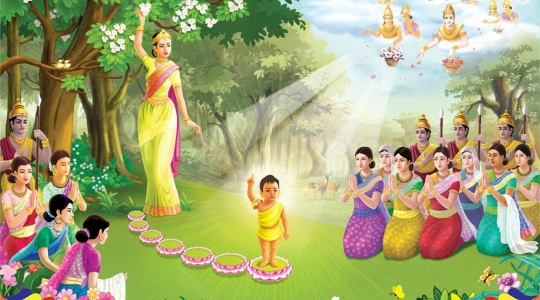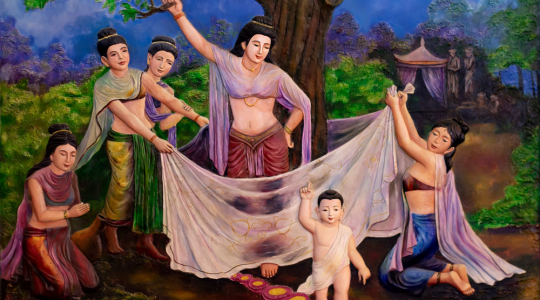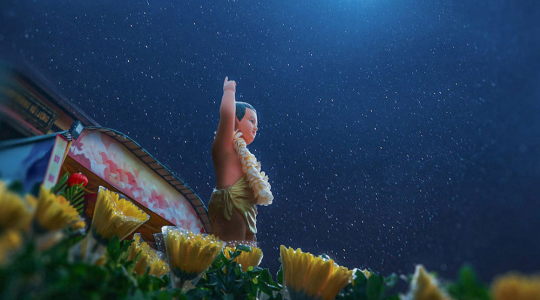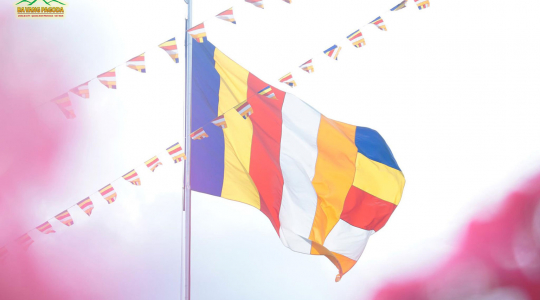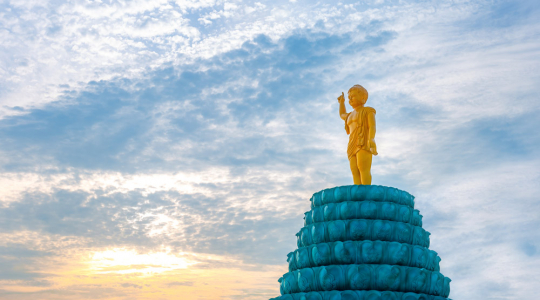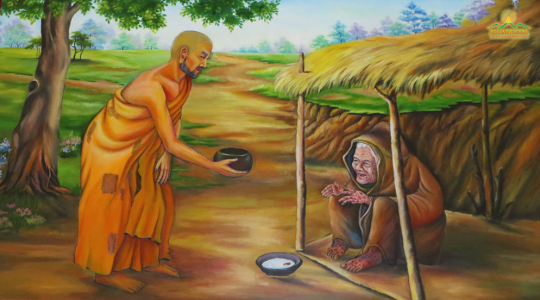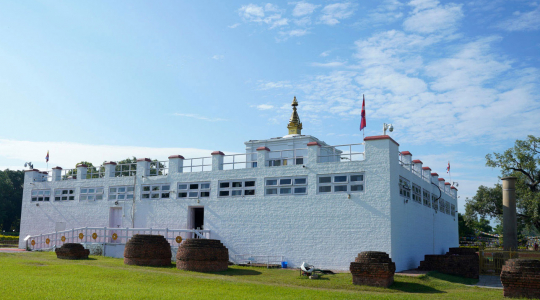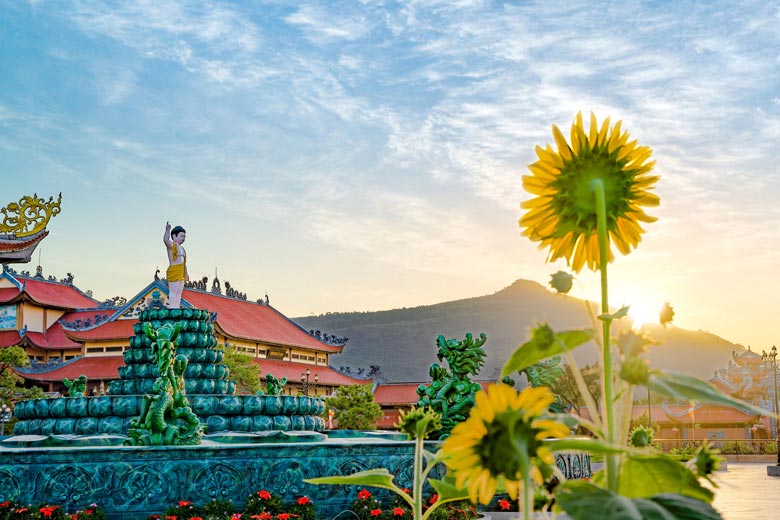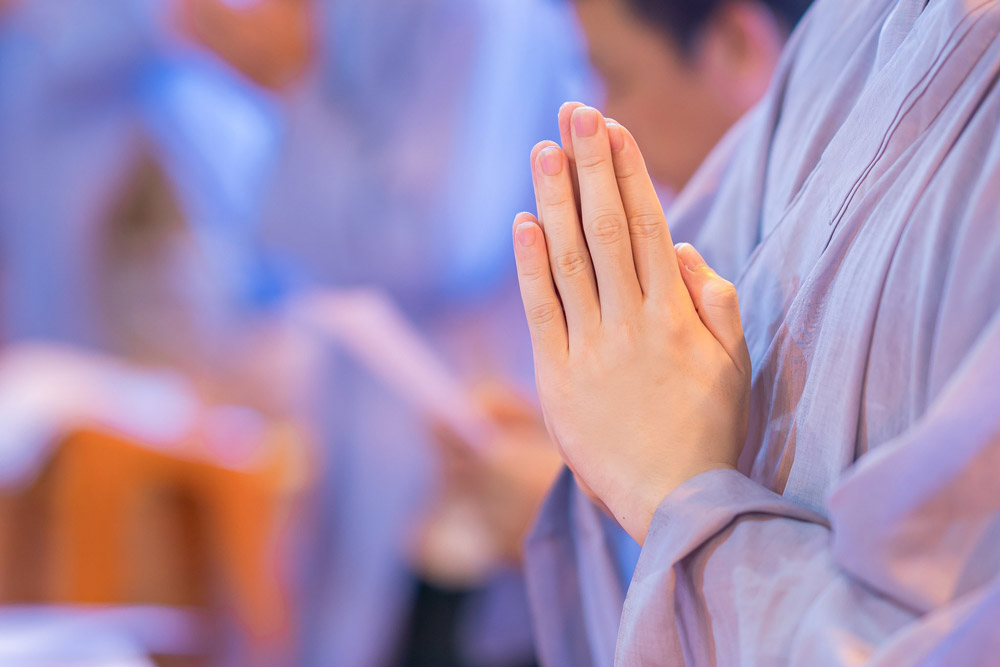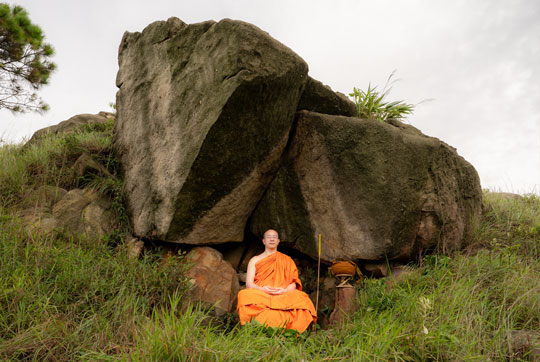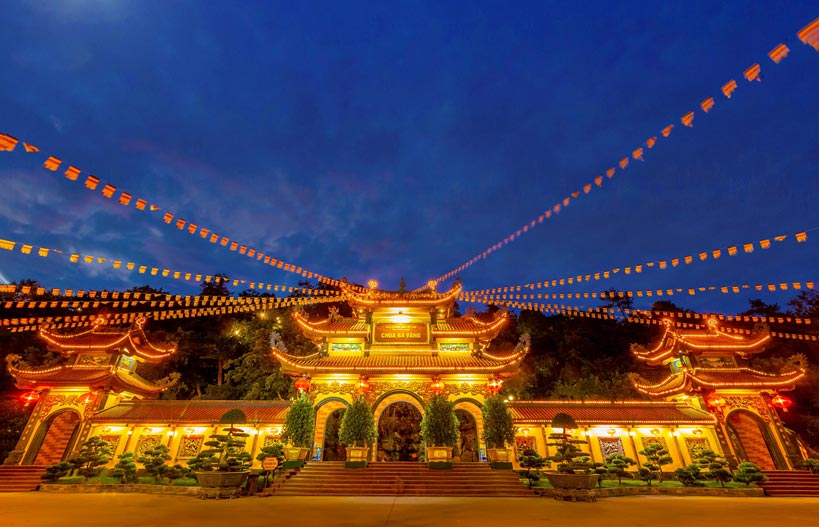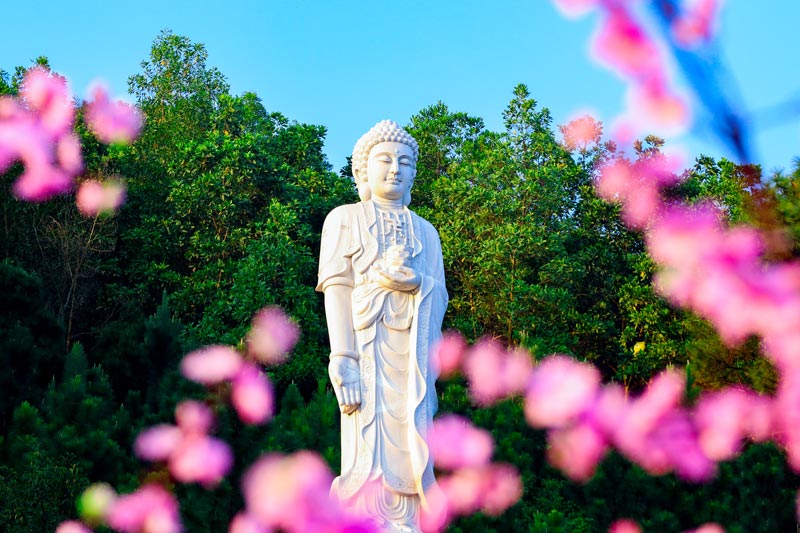Taking eight precepts: Experiencing Monks’ practices?
Table of contents [Hide]
The Buddha praised eight precepts in the Uposatha Sutra (translated from the Pali by Ñanavara Thera and Bhikkhu Kantasilo, 1996): the Uposatha observance as follows: “Bhikkhus. Uposatha is comprised of eight factors which the Ariyan disciple observes, the observation of which brings glorious and radiant fruit and benefit.” So, what is the meaning of eight-precept taking?
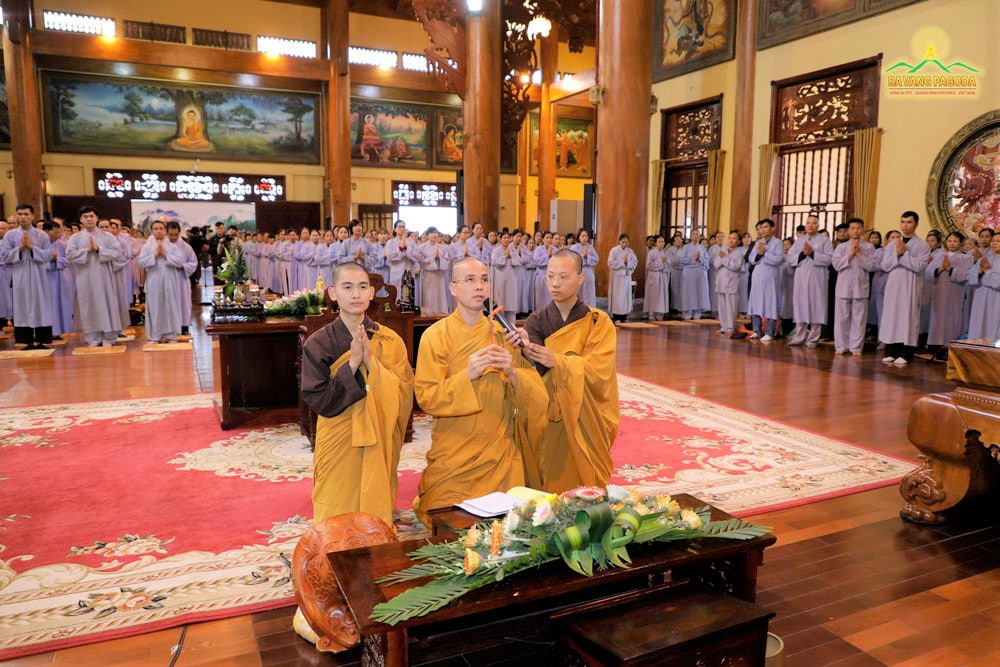
Monks of Ba Vang Pagoda perform rituals at a ceremony of transmission of eight precepts
Eight Precepts develop from five main precepts in which the third precept of abstaining from sexual misconduct expands into abstinence from any kind of sexual activities. The three additional precepts include: to abstain from eating afternoon; to abstain from singing, dancing, entertainment, wearing garlands of flowers or jewelry, using perfume, cosmetics; to abstain from lying on high or luxurious places.
Benefits from taking the three additional precepts out of eight precepts
Observing the five main precepts of virtue brings about a lot of peace and happiness to lay Buddhists in their life. How about taking the three additional precepts out of eight precepts for a day and a night?
>>> Read more: The five main precepts in Buddhism that make your life better
The sixth precept
Lay Buddhists taking the sixth precept for one day and one night will not eat after noon until the sun rises the next day, which helps them practice self-contentment. “The ability to control appetite results in a tamed mind”, taught Thay Thich Truc Thai Minh - the Abbot of Ba Vang Pagoda. Thus, Monks of Ba Vang Pagoda who have already accepted the full set of 250 disciplinary precepts strictly observe the precept of eating once a day.
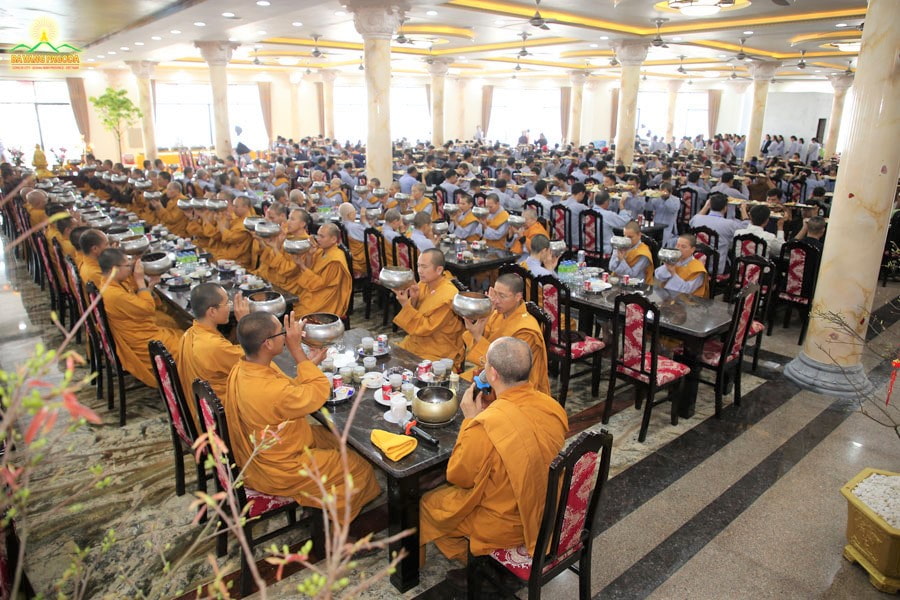
Monks of Ba Vang Pagoda only eat once a day (sixth precept out of eight precepts)
The seventh precept
It is a truth that this body is full of impurities that we are hardly aware of. However, we take more pride in our appearance by wearing make-up or well dressing to hide our ugly characteristics. Taking the seventh precept of abstaining from singing, dancing, entertainment, wearing garlands of flowers or jewellery, using perfume, cosmetics, lay Buddhists have the opportunity to practice the virtue of honesty and to live a simple life.
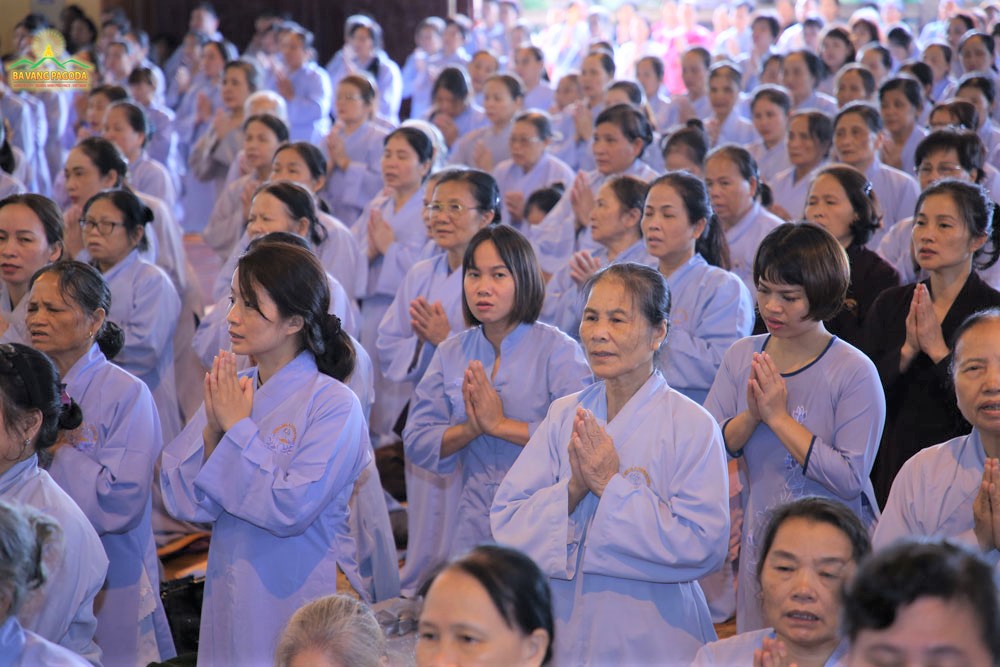
People taking eight precepts will not wear makeup and jewels
The eighth precept
The eighth precept of abstaining from lying on high or luxurious places makes lay Buddhists independent of sleeping places and unattached to the convenience of bedding. Therefore, this is also the chance for us to practice not pampering ourselves.
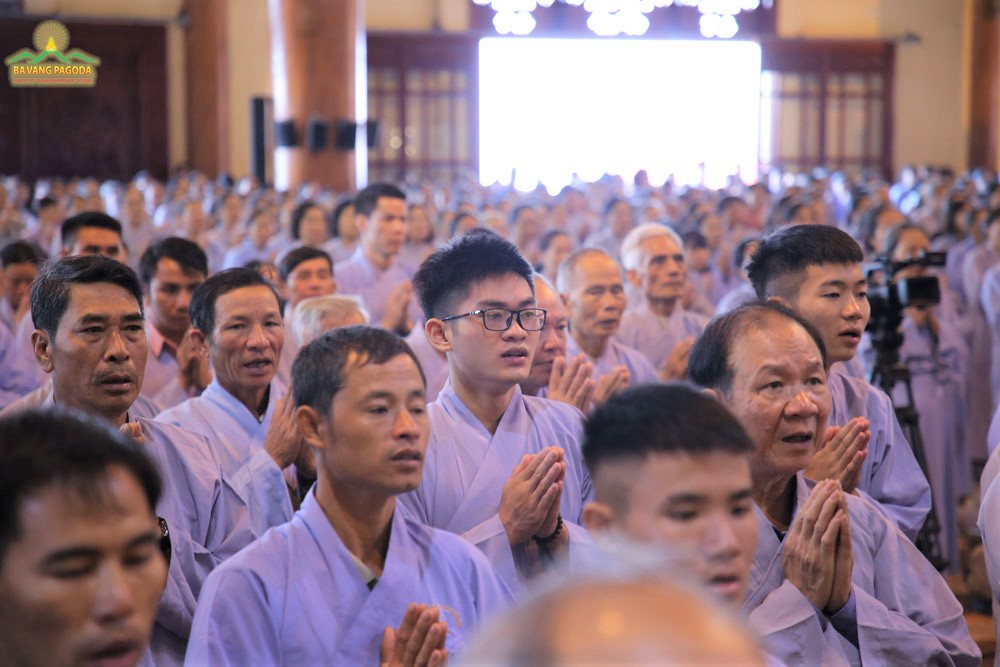
At a ceremony of transmission of eight precepts
Benefits of taking eight precepts
In the Visakha Uposatha Sutra (translated from the Pali by Bhikkhu Khantipalo, 1996), the Buddha declared the incredible fruits of eight-precept taking, also called Uposatha as follows:
"The radiance of the sun and moon, both beautiful to see, follow on from each other, dispelling the darkness as they go through the heavens, illumining the sky and brightening the quarters and the treasure found between them: pearls and crystals and auspicious turquoises, gold nuggets and the gold called "ore," monetary gold with gold dust carried down — compared with the eight-part uposatha, though they are enjoyed, are not a sixteenth part — as the shining of the moon in all the groups of stars. Hence indeed the woman and the man who are virtuous enter on uposatha having eight parts and having made merits bringing forth happiness blameless they obtain heavenly abodes."
Eight-precept taking is such a precious opportunity for everybody to practice the virtue of ordained Buddhists for one day and one night. Strictly observing precepts also means expressing gratitude to Buddhas.


